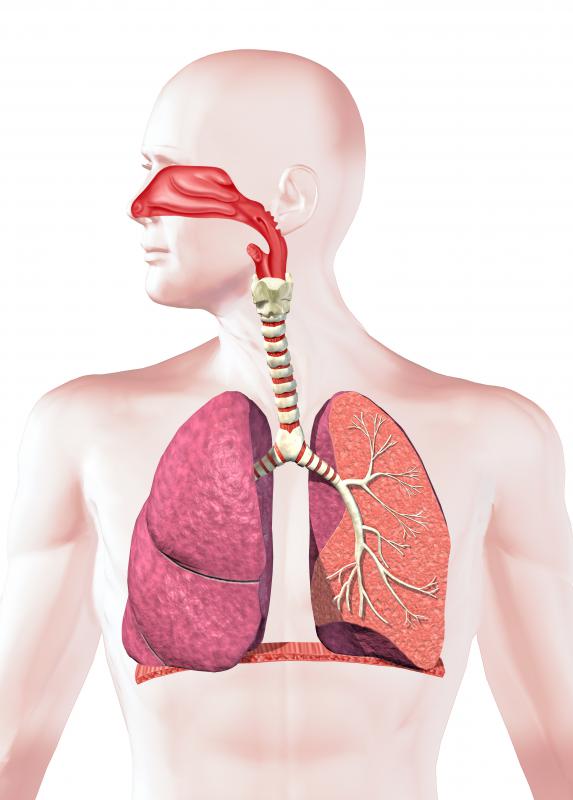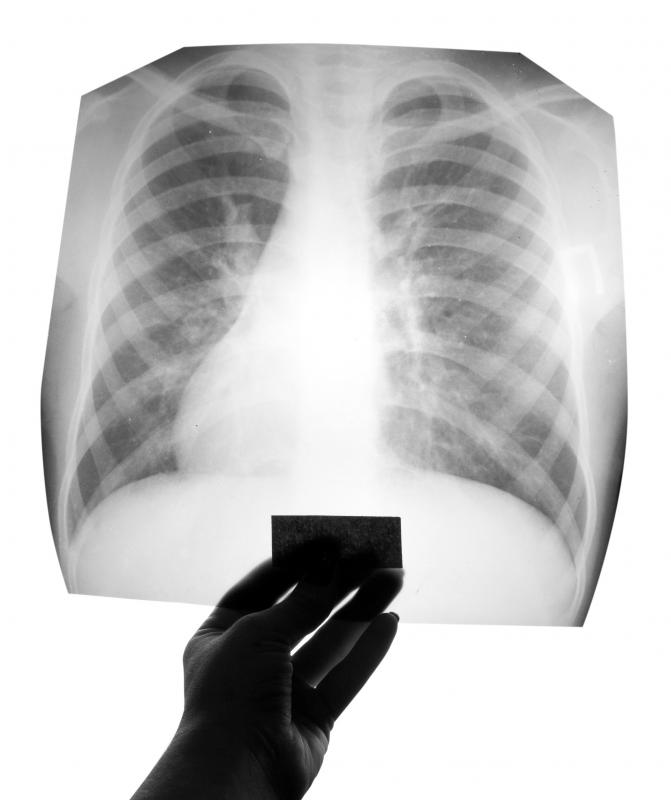At WiseGEEK, we're committed to delivering accurate, trustworthy information. Our expert-authored content is rigorously fact-checked and sourced from credible authorities. Discover how we uphold the highest standards in providing you with reliable knowledge.
What are the Different Types of Lung Cancer?
The two major types of lung cancer are non-small-cell lung cancer (NSCLC) and small-cell lung cancer (SCLC). The different types of lung cancer are divided into these categories based on their appearance when viewed through a microscope. The majority are non-small-cell, which has several subtypes.
Approximately 20% of lung cancers are small-cell lung cancers. Even though the cancer cells are small, they multiply rapidly, forming large tumors that can spread throughout the body. The most common cause of SCLC is smoking.

Small-cell lung cancer is also known as oat-cell carcinoma because the microscopic cells resemble oats. Incessant cough, chest pain, excess phlegm, and weight loss are symptoms of small-cell lung cancer. Treatment for SCLC is chemotherapy and radiation therapy. Surgery is almost never a treatment option.
The remaining 80% of the two types of lung cancer are non-small-cell lung cancers. Squamous cell carcinoma, adenocarcinoma, bronchioalveolar carcinoma, and large-cell undifferentiated carcinoma are all subtypes of NSCLC. The most common type of NSCLC is squamous-cell carcinoma.

Squamous cell carcinoma is also known as epidermoid carcinoma. It forms in the lining of the bronchial tubes and is the most common type of lung cancer in men. Adenocarcinoma is found in the lung glands that are responsible for producing mucus and is the most common type of lung cancer in woman and people who have not smoked. Bronchioalveolar carcinoma is a rare subtype of adenocarcinoma which forms near the air sacs of the lungs. Large-cell undifferentiated carcinoma forms near the outer edges of the lungs and grows rapidly.

Both types of lung cancer share some of the same symptoms such as, cough, chest pain, and weight loss. Other symptoms of NSCLC include difficulty swallowing, facial swelling, joint pain, and bone pain or tenderness. Certain tests are performed to help diagnose lung cancer including chest x-ray, sputum culture, bone scan and biopsy of lung tissue.
NSCLC is divided into five stages. Each stage is defined by the size of the tumor and the extent to which it has spread. Stage 0 is the least invasive stage in which the cancer is contained in the inner lining of the lung. In stage 5, the cancer can be found in other organs such as the liver or the other lung.

Treatment options for NSCLS vary depending upon the type of NSCLC and the stage of the cancer. Surgery can be used to remove cancer that is in an isolated area of the lung. Chemotherapy is used when the cancer has spread further. Radiation therapy is often used with chemotherapy.
AS FEATURED ON:
AS FEATURED ON:
















Discuss this Article
Post your comments